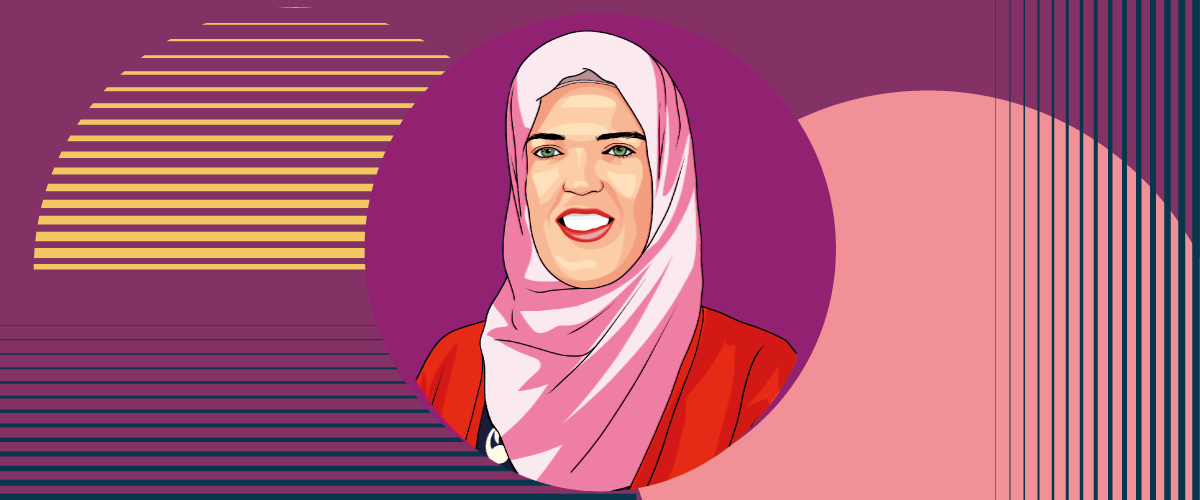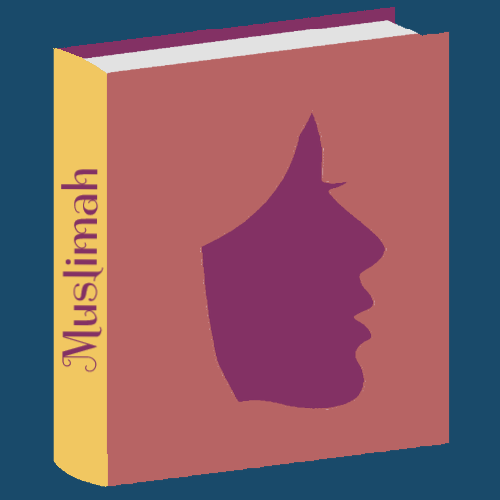
Finding Myself in a Place Away from Home — Anneke van den Berg
—by Nasreen NasreenManaging programs such as the one for “Mothers with Perinatal Mood and Anxiety Disorders” at Our Place Early Years and Family Resource Centre, a cheerful mother of four, Anneke says she is only doing what she loves most. Working with parents who are new to parenting as well as new to Canada, Anneke, a peer health worker, recently launched her brainchild — Parenting in a Pandemic. Her passion and energy for her work stem, perhaps, from her own experiences when she moved to Canada in mid-2007 and made Mississauga her home.
Anneke was born in a small, conservative village of Piershil in the Netherlands, which had a small population of 600 people. She was one of only 40 students in her elementary school. While her parents weren't religious, people in the town were, which meant life wasn't always easy. The eldest of her four siblings, Anneke distantly remembers that young girls and women in her village were only allowed to wear “feminine clothing,” including dark dresses and skirts that could never be bright and colourful. Women were only allowed to work in “serving professions.” “They could be teachers, but never the principal of a school. Women could be assistants at a clinic, but never a doctor! Since the use of birth control was looked down upon and against religious beliefs, there wasn't much for women to do than raise children,” says Anneke. This, however, did not stop Anneke from getting an education or wearing what she wanted to wear. Her parents were not as conservative and gave Anneke and her siblings freedom.
Her childhood wasn't particularly fun. Anneke felt she was always the odd one out. She didn't have many friends and was socially awkward, and that means she spent most of her time indoors by herself. Anneke fondly remembers the time when she was head over heels in love with reading new books. “I loved reading so much that my mother had to force me to leave the house so I could play with other kids or do things my age.”
When Anneke was eight, her family moved to a different village with a population of 3500 people. Anneke made up for her lonely childhood when she was in high school. She made many friends and enjoyed her time doing extra-curricular activities. However, she says their lifestyle was still influenced by what she had seen and lived through during those eight years in Piershil. “I still have a hard time spending money on frivolous things or putting my appearance first.”
She went on to pursue a M.Sc. and B.Sc. in International Development Studies. With a keen interest in transitional identities and conflict studies, Anneke interned at the UN Human Rights Commission. She explored the idea that people have multiple national identities for her thesis work and carried out research work in different countries, including Jordan and Sudan.
During this time, Anneke decided to convert to Islam. Wearing a hijab every day made her realize that the Netherlands wasn't as accepting of visibly Muslim women as she had presumed. Recalling a particular incident, Anneke says one day she was walking down the street in her hijab when a man stopped her and started yelling profanities. “He yelled at me and said, “You are a traitor, and you need to leave this country.” I never felt I was accepted in my own country as a Muslim woman.”
The feeling of being an outsider in her own country opened Anneke to the idea of moving to Canada. Anneke had heard that Canada was very welcoming and accepting of immigrants and Muslims. She also wanted to move away from home for a bit. Anneke had travelled to different countries for research work but hadn't been able to explore who she was away from her family. Her husband wanted to settle in Canada for a while and have children there. “It was a safe and beautiful place to raise a family. And I thought, why not. I knew I would also have a lot more opportunities for work as a visibly Muslim woman as compared to the Netherlands. However, the first few years after moving to Canada were tough. But we survived.”
ic community to rely on, Anneke started to feel like she didn't fit in anywhere. “I don't see myself as a conservative Muslim or in need of Muslim friends only. So I did not connect with Muslims either. I felt like the odd one out — the tall one with the weird accent. I love people, but there wasn't anyone to connect with.”
“Mississauga has many ethnic-based groups. Most groups were not open and accepting of “others” like me. And I couldn't apply to jobs either. Most jobs required you to have a certain language skill, such as Urdu. I did not know any of the other languages. So I couldn't find a job for the longest time.”
In the same year, Anneke gave birth to her first daughter. Two years later, she had her second daughter. Neither of the two pregnancies was easy on Anneke. It further exacerbated the feeling of loneliness. Her health deteriorated following her two pregnancies. “My second C-section became infected, and I needed to see the nurse for wound care every three days for six consecutive months. I could only shower the third day before the appointment. I had never felt so dirty and lonely in my life before. I told my husband I wanted to move from Canada. I could not stand being there anymore.” Anneke moved to Jordan to be with her husband's family and later to the Netherlands to be with her family and stayed there for a just over six months. During this time, her husband moved back to Canada. Having heard about the family-friendly community in Kitchener and how accepting and supportive it was of immigrants, her husband decided to buy a house there.
In 2012, Anneke moved back to Canada and settled down in Kitchener with her husband and two daughters. This time, Anneke tried her best to make connections and new friends in Kitchener. As soon as she arrived in Kitchener, the first thing she did was send an email to the Coalition of Muslim Women (CMW). “I had decided that I wouldn't be as isolated as I was in Mississauga.” Anneke moved to Kitchener in March 2012 and started volunteering with the CMW within three months of moving back to Canada. And she has been a volunteer with the organization for over eight years now. “I loved having a purpose, and the fact that the CMW always provided childcare was a lifesaver for me. I did not own a car, and it was hard in the beginning. I took the bus to several events. The CMW helped me get familiar with the Waterloo Region and meet some great people.”
During this time, Anneke and her husband had two boys. “I now had four children, and I extensively used the childcare options provided by the CMW. I attended several workshops and meetings with my babies in my lap.” Throughout her volunteering journey with the Coalition of Muslim Women, Anneke has been involved with the employment training, where she organized training for Muslim women looking for jobs in the Waterloo Region. She was also involved with the Hate Crimes project and the newsletter committee. Exploring her love for writing, Anneke is also currently working as a writer with the CMW's Muslimah Stories Project.
The CMW played a crucial role in Anneke's life. She met some of her best friends through the CMW and built life-long relationships. Currently employed with Our Place Family Resource and Early Years Centre, Anneke says she knows her co-workers like her because they put up with her crazy ideas and weird dancing and singing. “I love what I do. My work keeps me occupied, and it makes me really happy. I get to help women who are going through something that I have gone through being a new mother and being new to Canada.” While all her programs are virtual right now, Anneke says she still enjoys them but hopes to be able to make them available in person soon.
“Canada has given me opportunities to find who I am away from home. I miss home. I miss that my children and husband do not really get what it means to be Dutch (the good, the bad and the ugly). But it has opened my eyes to many new things I would have never been exposed to. Also, as a visibly Muslim woman, my opportunities here are better than back home, where I have been called a ‘traitor.’ I feel there is a place for me here in Canada. I can be myself here, more than I can be at home.”
